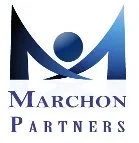
Current Trends in Interviewing
The employment landscape has shifted dramatically in the last few years. The pandemic hasn’t caused all the changes, but in some situations, remote working has accelerated change. Recruiting strategies in 2021 involve a combination of old and new practices – and some are a bit controversial. Let’s explore the current trends in interviewing and how both candidates and employers can be prepared.
Pre-Interview Research
In this digital age, there is no excuse for a candidate that doesn’t know about the interviewing company and employees. Interviewees should spend time on the company’s website, reading company news, and researching interviewers (LinkedIn is such an easy start). A candidate is expected to be armed with information and questions, and one that isn’t risks exclusion from a second interview.
Candidates should understand that interviewers will research them prior to an interview as well. This includes looking at professional sites like LinkedIn, but it also may include personal social media – or anything else that can pop up on a Google search.
Remote Interviewing
Interviews by video or phone certainly occurred prior to the pandemic. The recruiting phone screen was a staple, and early adopters used Skype and other precursors to Zoom for video. However, in-person interviews were always expected at some point prior to the offer. Today, a candidate may still have a phone screen, although more likely, it will be via video. And, in the early stages of interviewing, video can help with connecting the candidate with even more potential colleagues across the country – a true benefit when evaluating fit on both sides.
What is unique in current recruiting trends is that companies are hiring full-time employees entirely from remote interviews. This is both out of necessity and convenience. Therefore, as a candidate, it’s not sufficient to just be good at interviews, you must now be good at video interviews. Need some help? Read our 7 Video Interview Tips for advice from own recruiting professionals at Marchon Partners.
Companies should also advance their remote interviewing practices to find the best candidates. We previously highlighted how a staffing company like Marchon Partners can help with virtual hiring practices. Check it out!
Assessments and Portfolios
Companies are relying even more on talent assessments for potential new hires to ensure that candidates have the requisite skills for the role. Coding tests and technical assessments have been around for quite some time in IT recruiting. Personality assessments have also been common in areas such as sales. Now we are seeing that a broad range of assessments are popular with remote hiring as another method of gaining confidence in a candidate recruiters cannot meet face-to-face.
Assessments can be useful to determine the best fit for the role for both sides of the table. They can serve as an important screener so that hiring managers speak to only the most qualified candidates. However, the usefulness of assessments is only as good as the assessments themselves. Employers should ensure that their assessments are appropriate for the role and provide meaningful and actionable information. Need help building an assessment? Contact a professional staffing firm like Marchon Partners to gain best practice insights in your industry.
In addition to assessments, work samples and “proof of skills” are required more often in recent years. Digital marketing candidates routinely use portfolio sites like Contently for research, writing, and marketing campaign samples. Technical candidates are even required to provide sample code from previous projects in addition to the tests they take. Bottom line, candidates should be prepared to present more than their resume at interviews.
Job Auditions and Projects
If assessments and portfolios are not enough for your organization, you could consider using a job audition or project. This is a controversial practice that involves candidates building proposals and presenting solutions to real company problems during the interview process. For example, a potential sales leader would be asked to present a sales strategy for a new territory; or a marketing manager may be asked to come up with a campaign for a target customer group. These assignments can take hours to create, and successful completion does not come with a guaranteed job offer.
These practices are great for hiring managers as they can evaluate a candidates’ skills in real time with relevant topics. But auditions and projects are controversial because candidates are essentially being asked for free advice or intellectual property that can then be used by the company even if the candidate isn’t hired. Sites like LinkedIn are filled with posts complaining about these requirements. Is a job audition or interview project right for your company? It’s up to you. But be forewarned that a high-demand candidate may have the ability to choose companies that don’t require this upfront investment.
These and other recruiting strategies in 2021 are more demanding than ever. Marchon Partners is here to help! Contact us to discuss your recruiting and staffing needs.
Tags: interviewing tips, interviewing trends